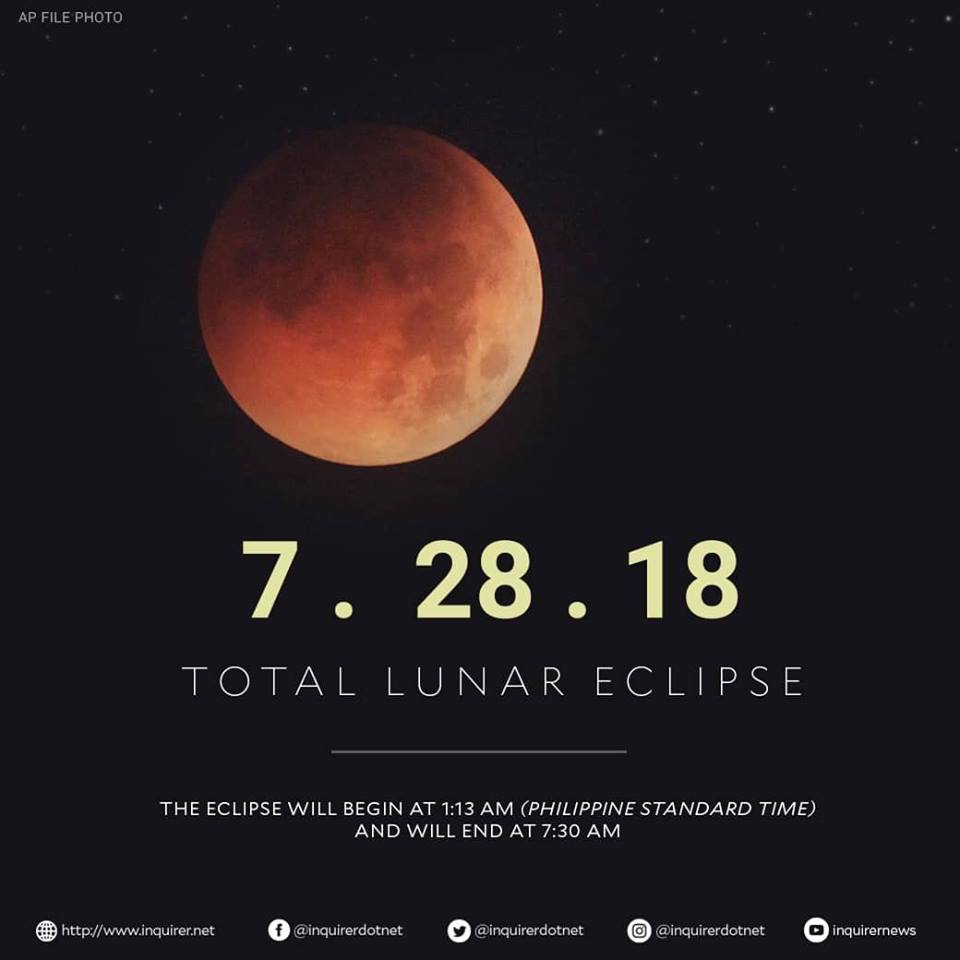A total lunar eclipse occurs when the moon passes through the Earth’s shadow and it also only happens when the Sun, Earth, and the moon are aligned with each other. During a total lunar eclipse, the sunlight that reaches the moon is refracted by Earth’s atmosphere and the atmosphere filters out the sun’s blue light—making the moon appear red.
The recent total lunar eclipse known as the “super blue blood moon” left many in awe as the moon turned into deep red color. It happens when a blue moon syncs with a supermoon and a total lunar eclipse. The phenomenon first occured in 1982 and won’t happen again in 2037.
This month, the world will witness the longest lunar eclipse of the century. On the night of July 27, 2018 (July 28, Philippine time), we’ll be treated to a total lunar eclipse that will last for one hour and 43 minutes, and will peak at 8.22pm UTC. In the Philippines, the eclipse will begin at 1:13 am (Philippine Standard Time) and will end at 7:30 am. It will be most visible in Africa, the Middle East, India, Australia, southern and eastern Europe.
This lunar eclipse will be particularly long because the moon will pass almost directly through the center of the earth’s shadow, umbra. The Earth’s positioning also plays a major factor on that day as it will be at its furthest point from the Sun—allowing it to cast a bigger shadow. The moon being at its most distant point in its monthly orbit around the Earth also contributes to this especially long eclipse.
The previously recorded longest eclipse lasted for one hour and 46.4 minutes on July 16, 2000. It’s just a few minutes shy of the maximum possible time for a lunar eclipse which is one hour and 47 minutes.
NASA keeps a list of lunar eclipses predictions until 2100 and the Longest Partial Lunar Eclipse is expected to be seen on Nov 19, 2021 while the Largest Total Lunar Eclipse will be on Jun 26, 2029.
—
Read more from InqPOP!:
National Geographic Channel launches innovative science series Breakthrough
Science says sniffing your partner’s shirt helps reduce stress
Tell your second-born siblings, science says they are the “problem child” in the family
Sleeping in on weekends might lower risk of an early death, study says
Scientists resurrect mind-boggling theory that early life on Earth came from space
